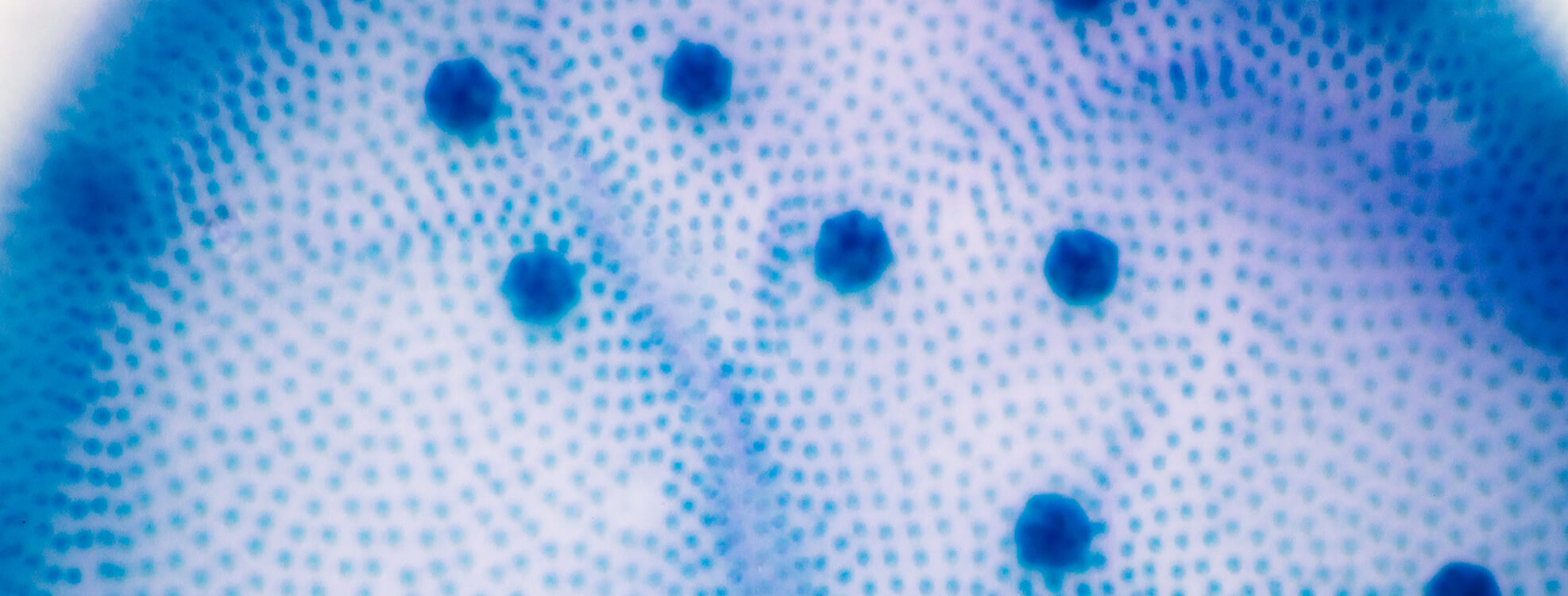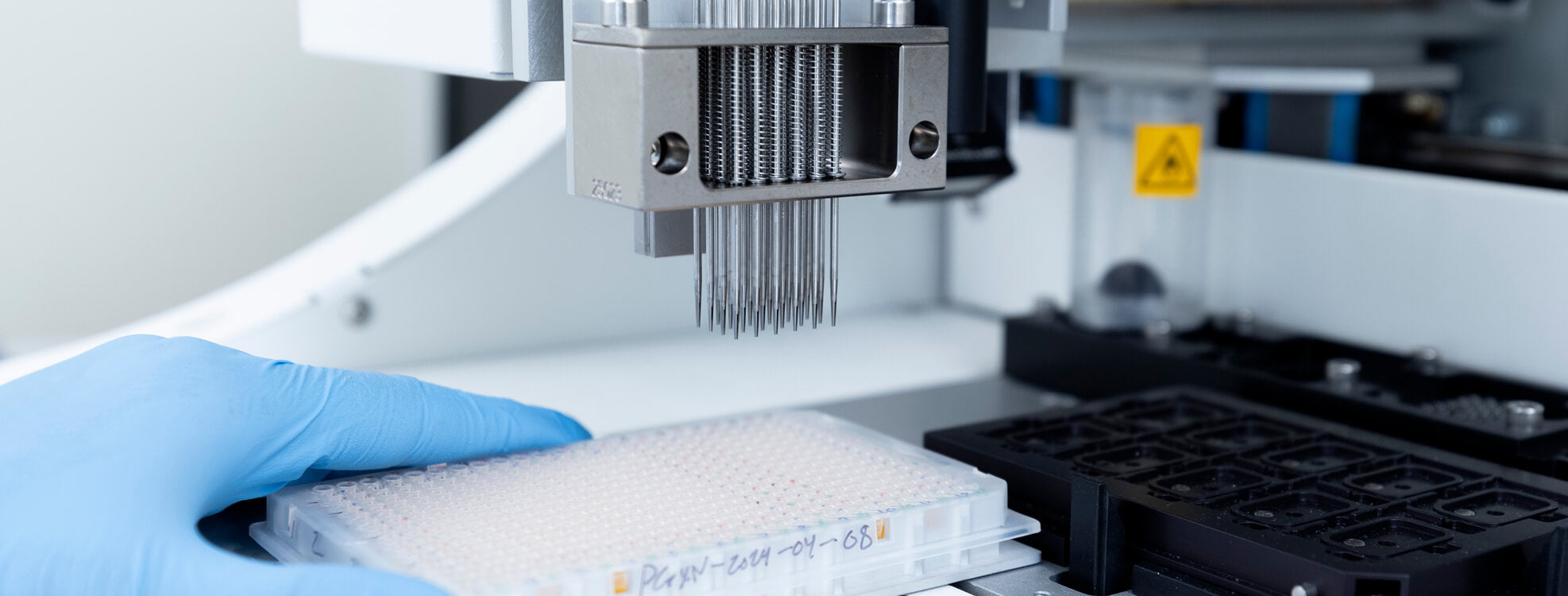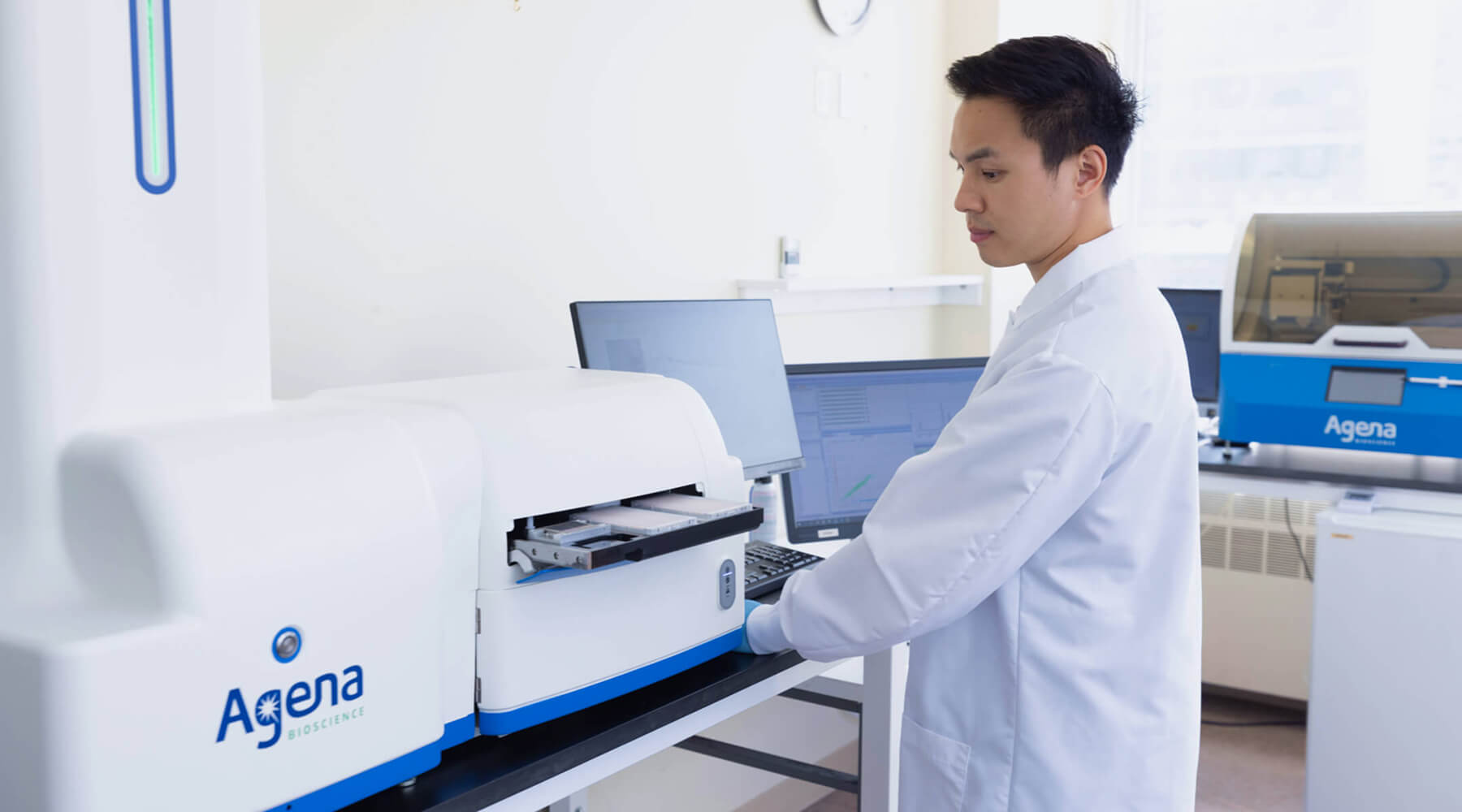The Science behind personalized medicine
Learn about the science behind Inagene and what makes us Canada’s most comprehensive pharmacogenetics test.
Pharmacogenetics studies how genes influence each person’s response to medications. Your unique genetic makeup affects how your body responds to medications. Pharmacogenetics uses this information to personalize treatments and help get the best possible results.
Gene-drug interactions
The interactions between drugs and genes can have a wide range of effects. For example, your genes can influence how fast you can metabolize a medicine. This can change what the ideal dosage should be. Slower metabolism of a drug could even increase side effects or toxic reactions.
Why pharmacogenetics matters
Understanding your own personal response to medications is a powerful tool. It can help avoid drawn out searches for the right medication, or in some cases it could be a life saver. Pharmacogenetics is especially important in areas like cancer treatment, cardiology, and mental health. Here, the right medication and dosage can drastically impact treatment outcomes.
Examples of pharmacogenetics in action
-
Cardiovascular Diseases
-
Mental Health Disorders
-
Cancer
-
Pain Management
-
Autoimmune Conditions
-
Neurological Disorders

Cardiovascular Diseases
How someone responds to blood thinners (warfarin, clopidogrel) or statins varies from person to person due to their genetic differences. Many people experience troublesome side effects or are unaware that the medication isn’t working to prevent heart attack and stroke. Pharmacogenetic testing can avoid this by matching the right drug to the individual.
Medication Examples
warfarin, clopidogrel, statins

Mental Health Disorders
Differences in a person’s genes can change how well these drugs work and what side effects they might cause. Pharmacogenetic testing can increase chances of remission in depression patients by 85% when it comes to depression.³
Medication Examples
SSRIs, antipsychotics

Cancer
A key aspect of pharmacogenetic testing in cancer is helping to predict the risk of severe toxicities so that alternative treatments or non-standard dosing can be used in place.
Medication Examples
Certain chemotherapies (e.g., capecitabine)

Pain Management
Certain individuals may not experience pain relief due to genetic differences in how their body processes these drugs, while others may experience dangerous side effects like respiratory depression.
Medication Examples
Opioids like codeine and tramadol

Autoimmune Conditions
Medications used in conditions such as rheumatoid arthritis or inflammatory bowel disease, can have variable effects based on genetic variants, impacting toxicity risks.
Medication Examples
Drugs like azathioprine and mercaptopurine

Neurological Disorders
Genetic testing can identify patients who are at higher risk for severe reactions, such as Stevens-Johnson Syndrome which is a severe skin reaction.
Medication Examples
Anti-epileptics like carbamazepine and lamotrigine
Nutrigenomics studies the relationship between your genes, diet and health. It focuses on how your genes interact with the food, drinks, and supplements you consume, as well as your exercise habits. Using Nutrigenomics can help you understand how your body responds to different nutrients based on your DNA.
Analyze Your DNA for Personalized Nutrition and Fitness Insights
Inagene offers Nutrition & Fitness testing through a partnership with Nutrigenomix, a biotechnology company that provides genetic testing in over 50 countries. The results from the test help create a personalized plan to improve your health and fitness.
Examples of nutrigenomics in action
-
Personalize weight management
-
Decode food sensitivities
-
Discover hidden nutrient needs
-
Prevent chronic conditions

Nutrigenomics gives you a personalized roadmap for weight management, tailored to your unique genetic makeup. Discover how your body responds to macronutrients - protein, fat and carbs to build a diet that’s best for you.

Nutrigenomics reveals the genetic basis of food sensitivities, so you can make informed dietary changes. Understand your tolerance for glucose, lactose, alcohol, and caffeine. Avoid trial-and-error approaches to managing food sensitivities.

Detect deficiencies in essential nutrients like Vitamin D, B12, calcium, and folate to prevent chronic inflammation and fatigue. Fine-tune your diet for better body composition and energy levels. Learn which supplements might—or might not—be necessary for you.

Identify genetic insights related to your diet to help reduce the risk of chronic diseases like diabetes and cardiovascular conditions. Implement a science-backed diet for lifelong wellness and longevity.
Our vision for accuracy and innovation

Research diversity
We are committed to comprehensive and inclusive genetic coverage. Our panels include not only well-established variants but also rare and diverse markers, particularly those underrepresented in individuals of non-European ancestry. By incorporating data from a wide range of ethnic groups and continuously updating our variant databases, we significantly reduce the risk of misclassifying someone with abnormal drug metabolism as having a normal profile. Our priority is to deliver accurate, personalized insights to people of all backgrounds.
Evidence based approach
We design our products around established evidence-based approaches. We only use reputable sources such as Clinical Pharmacogenetics Implementation Consortium (CPIC), Dutch Pharmacogenetics Working Group (DPWG), FDA, Health Canada and others.
Continual improvement
We both stay current with ongoing research and actively contribute to it. When you buy our test, you are receiving the most up-to-date and accurate information. This is crucial, as new gene variants, and gene-drug associations are continuously being uncovered.
Our Team

Dr. Kathy Siminovitch

Dr. Ben Pinder

Dr. Ashwin Juneja

Sindy Zheng

Oscar Tran
-
Our Commitment to Security and Privacy
-
Protecting your privacy and personal data is our top priority. We ensure your genetic data is secure, never shared or sold, and comply fully with Canadian Data Protection regulations, including PIPEDA and Provincial Privacy Regulations. Our comprehensive safeguards—physical, electronic, and procedural—protect against unauthorized access, use, alteration, duplication, destruction, disclosure, loss, or theft of your personal information.
FAQs
How Accurate is Pharmacogenetic Testing?
Inagene tests are unique in how comprehensive they are, which sets us apart in accuracy. We test for more gene variants common in non-European populations than any other product. Without this genetic scope, someone's genetics could get misidentified as normal by another test, making that test inaccurate.
When is the best time to take a pharmacogenetic test?
The best time to test is before having a specific need for medication, as a proactive measure. If you need treatment, you can share your results with your health care provider. Then these results can be considered when selecting the right medication for you.
Why analyze your DNA for personalized nutrition and fitness insights?
Nutrition is vital for health, and standard recommendations overlook individual differences. Your genes can affect everything from weight management to cardiometabolic health to fitness performance and injury risk. Working with your healthcare provider or dietitian, you will be able to learn what foods you should be eating more or less based on your DNA to decrease your risk of developing chronic diseases, optimize your health, performance, fertility, and more.
If a medication is not in the report, how do I know if my genetics won't affect my response?
When treating their patients, health care providers typically will rely on prescribing guidelines, their judgement, and non-genetic factors specific to the person being treated. If relevant medication(s) are included on a pharmacogenetic report, then it is advisable that this result be considered as well. If a medication isn't reported on our tests, it's often because there hasn't been sufficient scientific study to establish genetic factors influencing an individual's response to that medication, and therefore, pharmacogenetics is not a factor that would influence treatment decisions.
-
Citations
-
- McInnes G, Lavertu A, Sangkuhl K, Klein TE, Whirl-Carrillo M, Altman RB. Pharmacogenetics at Scale: An Analysis of the UK Biobank. Clin Pharmacol Ther. 2021;109(6):1528-1537. doi:10.1002/cpt.2122
- Swen JJ, van der Wouden CH, Manson LE, et al. A 12-gene pharmacogenetic panel to prevent adverse drug reactions: an open-label, multicentre, controlled, cluster-randomised crossover implementation study. Lancet. 2023;401(10374):347-356. doi:10.1016/S0140-6736(22)01841-4
- Ghanbarian S, Wong GWK, Bunka M, et al. Cost-effectiveness of pharmacogenomic-guided treatment for major depression. CMAJ. 2023;195(44):E1499-E1508. doi:10.1503/cmaj.221785






